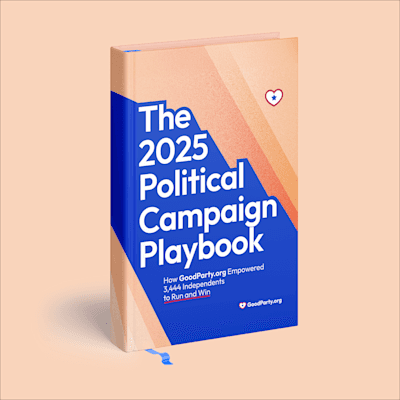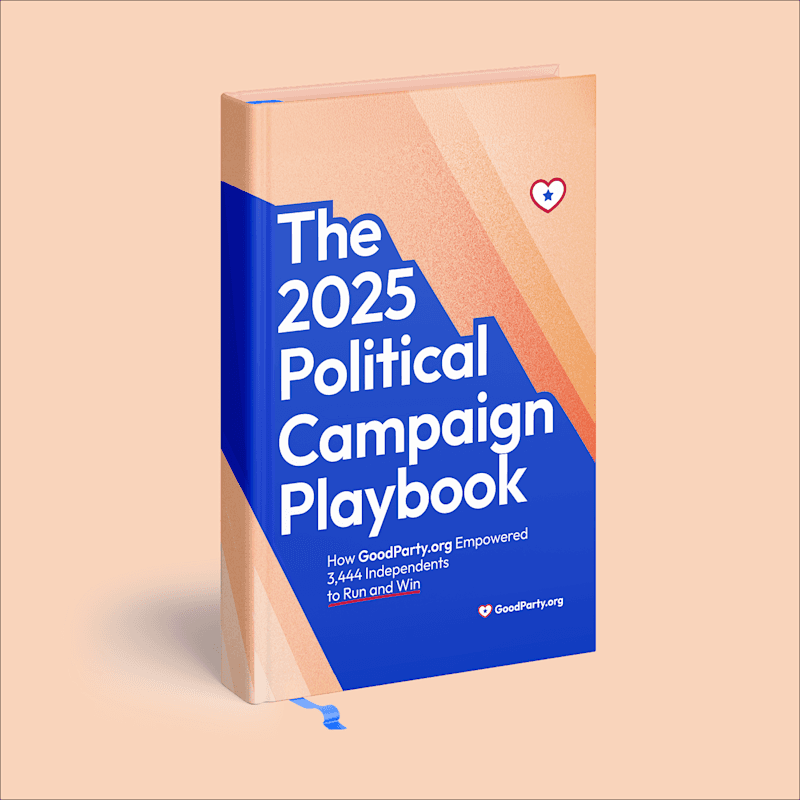
In-Kind Donations to Political Campaigns
It often seems like politicians chase after dollars more than they chase after voters. Indeed, money appears to be the life blood of political campaigns. More precisely, however, the things money can buy — like airtime on radio and television, travel, digital advertising, and entertainment costs for potential supporters — are what garner exposure and influence for candidates. When such things are offered directly to campaigns, without the exchange of currency, they are considered in-kind donations. These gifts affect donors' tax obligations and legal exposure differently than, say, straight contributions of cash.
Understanding In-Kind Donations
In-kind donations can be made by entities as diverse as individuals, businesses, and nonprofits. Key to their status is that the gift must be a good or service, as opposed to a financial grant.
Here are a few hypothetical examples of in-kind donations:
A used car dealer could provide vehicles to a favored candidate
A hotel chain could make free rooms available for a campaign team
A website designer could offer free creative services
An event planner could help manage a fundraising dinner
As long as no money changes hands, these types of donations in politics count as in-kind contributions. Political campaigns might prefer these provisions because they free up campaign capital for other uses and show less cash on hand on their balance sheets. Donors, on the other hand, benefit because they can offload surplus inventory and not worry about draining the bank account.
Legal Considerations for In-Kind Gifts
Both donors and political candidates should keep the legal considerations of in-kind donations in mind as gifts and services change hands.
IRS Regulations and In-Kind Support
As a general rule, political contributions are not tax deductible. That being said, a donation is any sort of gift or endowment that is made — to political candidates or others — without expectation of compensation. In many cases, donations enjoy some tax benefits. Political contributions, though, do not go to charities or other organizations that the Internal Revenue Service (IRS) would deem as benevolent.
The Federal Election Commission (FEC) counts in-kind gifts against contribution limits to donations in politics and campaign finance resources. Donors must therefore file a record of their bequests with the FEC which, in many cases, assigns a cash value to the item or service given. Still, this applies to matters of campaign finance as opposed to personal or business income tax. The bottom line is that campaign donations to political parties are not deductible because the IRS does not recognize these entities as eligible 501(c)(3) organizations.
State Laws Affecting In-Kind Donations
State laws and rules governing in-kind contributions are as varied as the states themselves.
For example, Maryland places a cap on these gifts at a value equal to one dollar for every two registered voters in the state. This amount can only be renewed after a four-year cycle. Massachusetts puts no limits on in-kind gifts whatsoever. The same goes for New Mexico, Ohio, and Rhode Island. As far as tax deductions go, Arkansas, Ohio, Oregon, and Virginia do offer limited tax credits for campaign donations to political candidates.
Documentation Required to Record In-Kind Donations
Since political fundraising and donations are subject to rigorous campaign finance regulations, those making in-kind contributions must take care to document their gifts and volunteering time. Political action committees (PACs), for instance, must designate who the vendor — or donor — is; where the person or business dwells; and the date when the product or service was conveyed. Additionally, the donation must be carefully designated as "in-kind" and should also appear on the FEC form for PACs. This includes candidate names, the office sought, and the jurisdiction of record. The FEC receives this information on hard copy forms or, alternatively, through its electronic filing system: FECFile.
Ethical Considerations in Accepting In-Kind Assistance
In addition to the legal considerations, candidates who want to run transparent, corruption-free campaigns should also think through the ethical considerations of accepting in-kind donations.
Navigating Conflicts of Interest
On the face of it, in-kind donations may seem less ethically hazardous compared to monetary donations. However, if it has financial value, recipients must take care to assure donor transparency and maintain campaign finance compliance. Political donation guidelines are clear that these endowments must be subject to honest and detailed reporting.
Some entities are barred by law from campaign funding. So, ethical fundraising practices demand that campaigns, PACs, and other groups refuse any sort of support from those who have contracts with the government; foreign nationals; labor unions and related organizations; and corporations, including those of the non-profit variety. These entities may or may not have competing interests that could smack of influence buying.
Ensuring Equity and Inclusivity
Understanding who cannot donate is important, but so is making sure that eligible donors face no discrimination. Legal compliance with all civil rights laws applies to political organizations as well as to businesses. No person should be denied the opportunity to make a contribution because of their race, religion, gender, sexual orientation, or other protected identities.
Other Important Considerations
Donors should be sure to assess the price tag of the gift. Because in-kind giving avoids money changing hands, donors might forget that regulators will put a price tag on in-kind goods and services. Fairly or unfairly, someone will appraise the financial worth of the gift and require that it fall within legal limits for campaign donations.
In-kind services are not necessarily anonymous. When filing the proper forms with the FEC, the sources of political donations make their offerings a matter of public record. Those who skirt this requirement earn the moniker of "dark money" providers.
Campaign finance laws prohibit labor unions, like corporations, from directly contributing to political causes. However, individual members are under no such proscription.
Non-monetary donations are specific to the current campaign and cannot be utilized for another attempt at a different office.
When making an in-kind donation, it can be important to think about which of the campaign’s needs more urgently need to be addressed.
In-Kind Donations and a Broader Fundraising Strategy
In-kind donations might be only one kind of donation that a political campaign receives. While different campaigns accept varying amounts of support, many campaigns might receive both monetary and non-monetary donations.
Follow these tips to integrate in-kind donations into your campaign’s larger fundraising strategy:
Include in-kind donations in the campaign’s budget. Keep track of these donations in the same place that your campaign keeps track of any other donations.
Consider each in-kind donations non-discretionary, and cash contributions discretionary. In-kind gifts are what they are, whereas financial donations can be employed in a wide range of ways.
If your campaign sends out requests for donations, include in-kind donations as an option for supporters to contribute. Keep in mind that many voters may think of monetary contributions as the only way to donate to a political campaign.
Additionally, consider the ways that in-kind donations can work with your larger campaign strategy. Accepting in-kind contributions from local businesses or community organizations can be a great opportunity to form a stronger partnership. In-kind donations can also support volunteer efforts, helping your campaign retain a motivated and impactful volunteer network.
Free Campaign Tools to Boost Your Strategy
Want access to more free resources as you run for office? GoodParty.org offers free and low-cost campaign software and support for independent, non-partisan, and third-party candidates running for office across the United States.
Learn how you can access today by booking a free consultation with our team, or by exploring GoodParty.org’s free tools for yourself.

